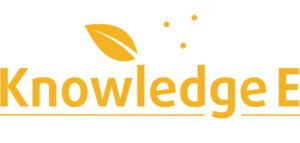Seasons are beginning to shift as we enter the month of May, and for some parts of the world that means pulling out our sunhats and finding the closest pool chair to relax on, while for others it’s time to bundle up as the leaves begin to change colour and cooler breezes pick up. Regardless of where you may be, why not spend the next few weeks of transition reflecting on the world around you with the latest selection of groundbreaking research across multiple disciplines, published on our Open Access platform.

1. How has Herbal Medicine Shaped Societies in the UAE?
Herbal remedies have been used in Bedouin traditional medicine for thousands of years to treat various human ailments. Arab tribes would travel across harsh desert conditions for months at a time and depended on the natural elements to support their survival, using various plants and natural materials to improve their qualities of life. However, as the region began to exchange knowledge with various other cultures, herbal medicine was slowly replaced with modernised medical systems that depended on Western scientific knowledge. This is evident in the fading awareness of inherited herbal remedies in the UAE’s capital, Abu Dhabi.
Find out more about people’s perceptions of herbal remedies in the UAE here.

2. Are Chatbots Really Improving our Intellectual Lives?
It wasn’t too long ago that we’d turn on our television screens for an airing of “The Jetsons”, “Back to the Future” or another science fiction programme portraying a future filled with flying cars, 3D printers, and talking robots. These once impossible-to-imagine fantasies have largely become realities in today’s world, where scientists are constantly on the brink of some major technological advancement. But how beneficial are these inventions for the everyday life of the average person? This study explores the relevance of one of these advancements in improving education systems across the digital world.
Read more about the role of technological advancements in improving education systems here.

3. Can Graphic Novels Help Save the Planet?
When asked to think about comic books, we may conjure up images of young adults indulging in their latest Sci-Fi fantasies, reading stories about superheroes fighting masked villains and saving a fictional world. But what if we are underestimating the medium’s truly ‘world-saving’ powers? One study explores digital comics as a potential learning material for students learning about the climate crisis, helping teachers explain highly complex topics in through a palatable platform.
Learn more about the ways that digital comics can be used to support teachers in the classroom here.

4. Can Mining Companies Benefit Wider Communities?
Mining industries have become infamous for their contributions to climate devastation and social instability across the world. Constantly in the news for human rights abuses, major resource wastage, and greenhouse gas emissions, it is difficult to imagine the companies behind this industry as having much interest in the betterment of wider communities around their mines. However, researchers in this article work to challenge preconceived notions around the impact of mining companies on society, using Indonesia as a case study to show the developmental role of these companies as community agents in the vicinity of their operations.
Study the longstanding symbiotic relationship between mining companies and communities in Indonesia here.

5. Can Learning About the Past Help Shape Future Minds?
The imminent realities of Society 5.0 have begun to shape the foundations of many curriculums and education systems across the world. As schools, universities, and training centers try to keep up with the demands of a future filled with technologically-savvy and socially-conscious minds, many of these curriculums have begun to focus on hard skills related to computational knowledge and quantitative analysis. However, some scholars are warning against neglecting softer skills like critical thinking, empathy, and cultural awareness, that are often taught explicitly and implicitly through the social sciences.
This study looks at the role that history can play in improving the literacy and softer skills of students to balance their education.
More from the KnE Blog

